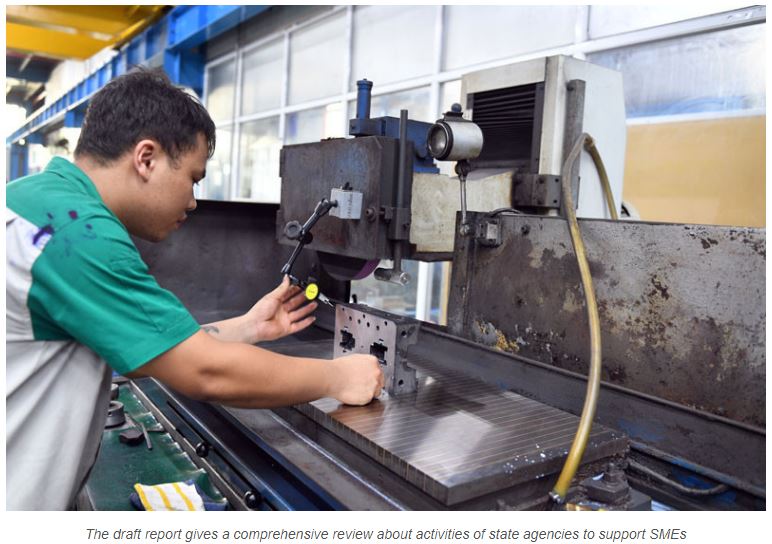Vietnam: Agencies write laws to help SMEs but lack information about the businesses
Some content needs to be more clearly quantified to better assess the effectiveness of these activities and the feasibility of regulations on SMEs.
According to the Vietnam Confederation of Commerce and Industry (VCCI), the Ministry of Planning and Investment’s (MPI) draft report on implementing the Law on Supporting small and medium enterprises (SMEs) is built on the perspective of management agencies, not the beneficiaries.
The draft report gives a comprehensive review about activities of state agencies to support SMEs. However, some content needs to be more clearly quantified to better assess the effectiveness of these activities and the feasibility of regulations on SMEs.
For example, regarding credit access, the draft report named changes and improvements in providing credit at credit institutions, but did not give specific information such as the percentage of credit institutions which have been renovated; the time enterprises have to spend to access loans, and the number of loan applications approved.
Regarding beneficiaries, the draft just lists activities state agencies have carried out, not the results of supporting activities.
For example, in terms of supporting enterprises to get production premises, it is unclear how many SMEs can obtain production premises. This is among the biggest difficulties of enterprises.
Helping SMEs renovate technology is another example. It is unclear how many enterprises support Igor innovation and technological base.
According to VCCI, the perspective from SMEs, which should be put at the center, cannot be sufficiently reflected in this report.
VCCI has asked for more information from beneficiaries, for example, about the results of some activities.
VCCI’s provincial competitiveness index 2021 released in April 2022, which was made based on the feedback of 10,000 businesses from 63 provinces, showed that less than 8 percent of enterprises could receive support from the programs.
The program that has the highest proportion of beneficiaries is credit guarantee, but only 7.34 percent of businesses could access it.
The program with the lowest proportion of beneficiaries is one that helps firms enjoy lower rent on land in industrial zones (IZs), with 4.75 percent.
Tran Thuy
Source: https://vietnamnet.vn/en/agencies-write-laws-to-help-smes-but-lack-information-about-the-businesses-2088470.html


 English
English




